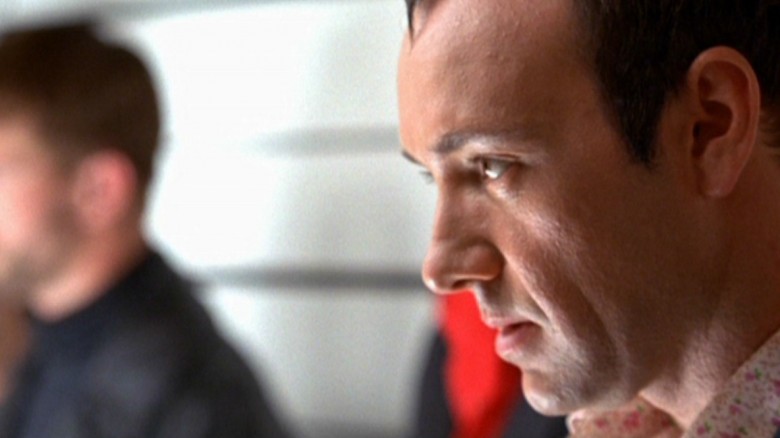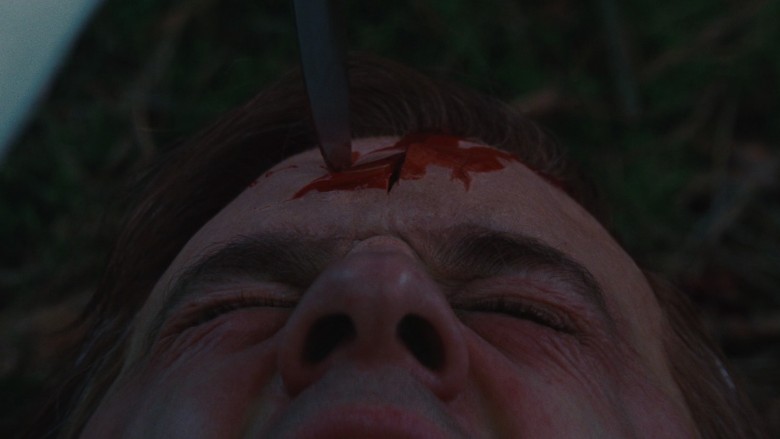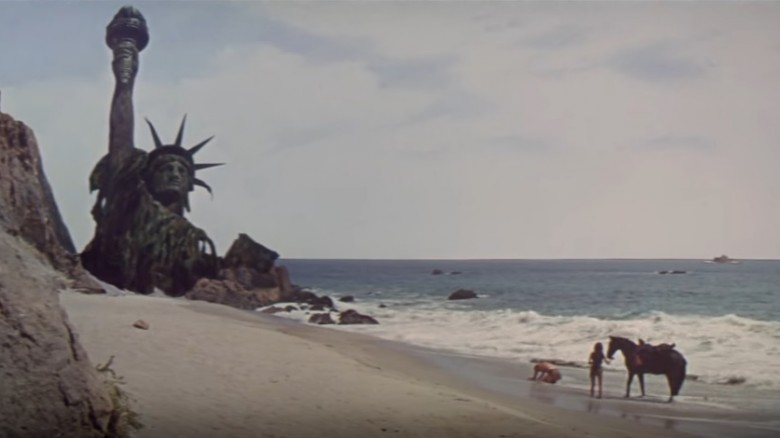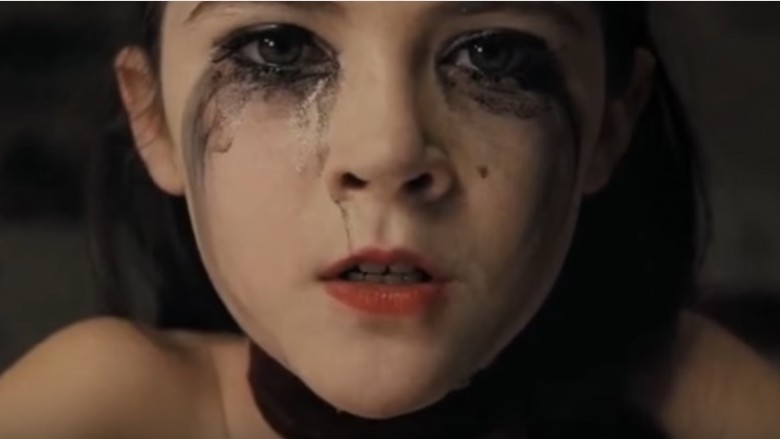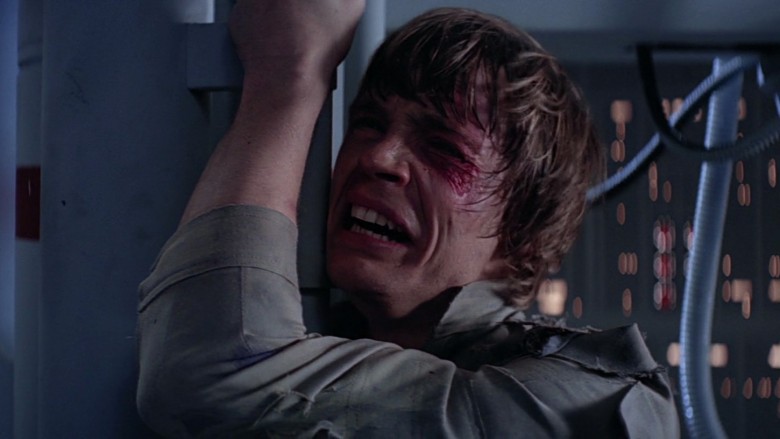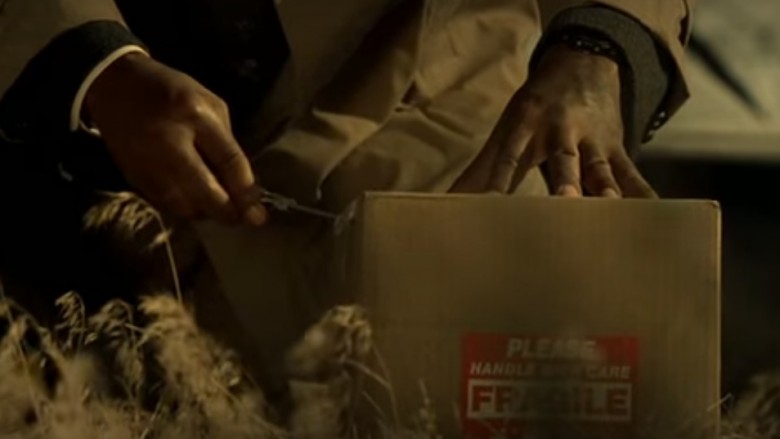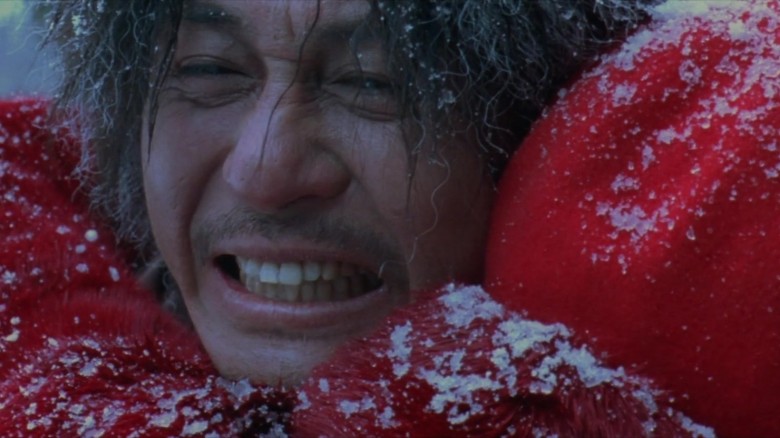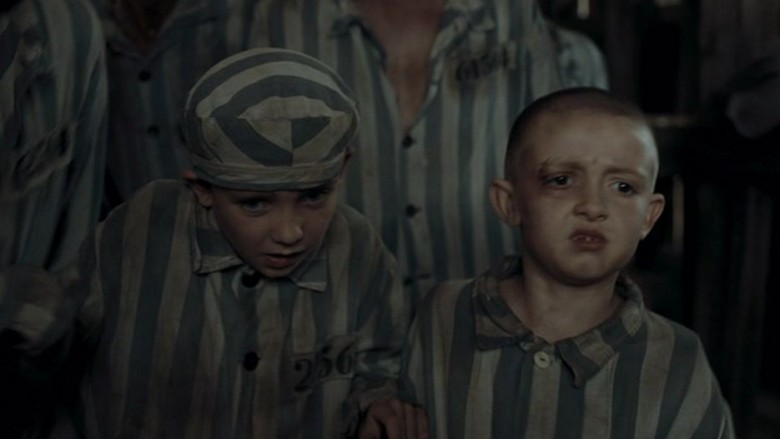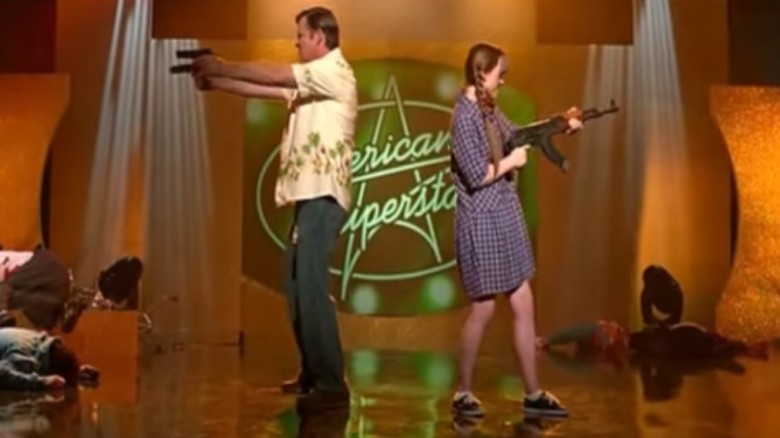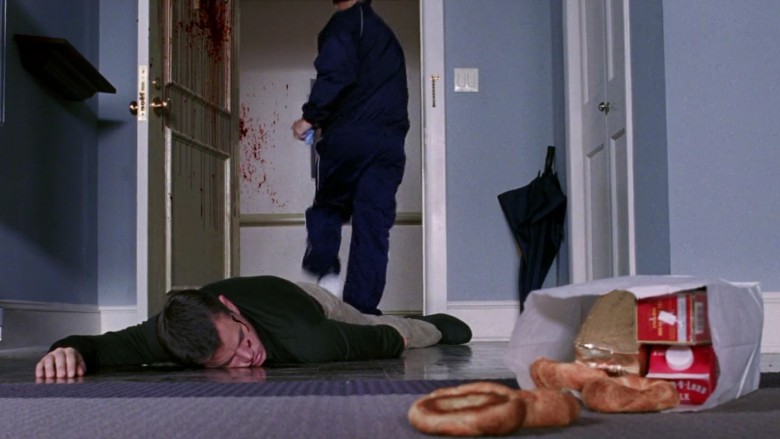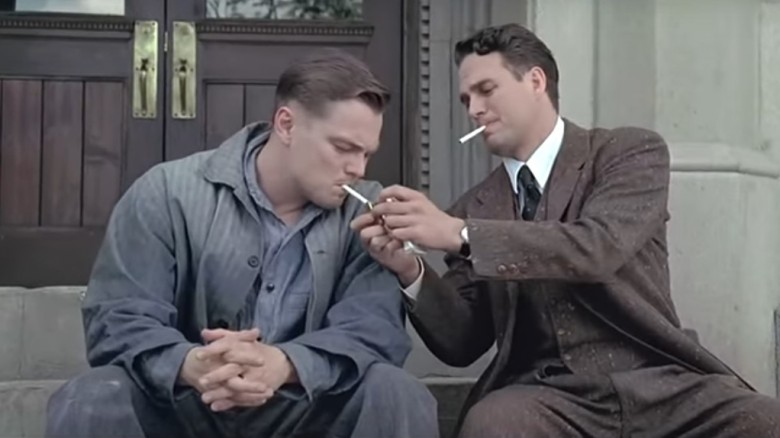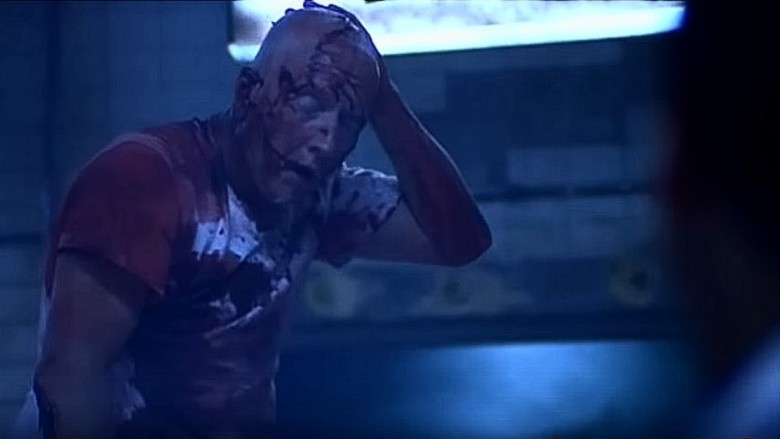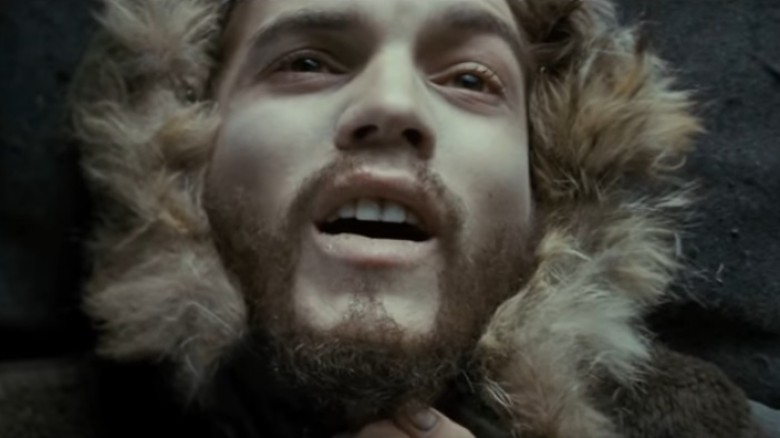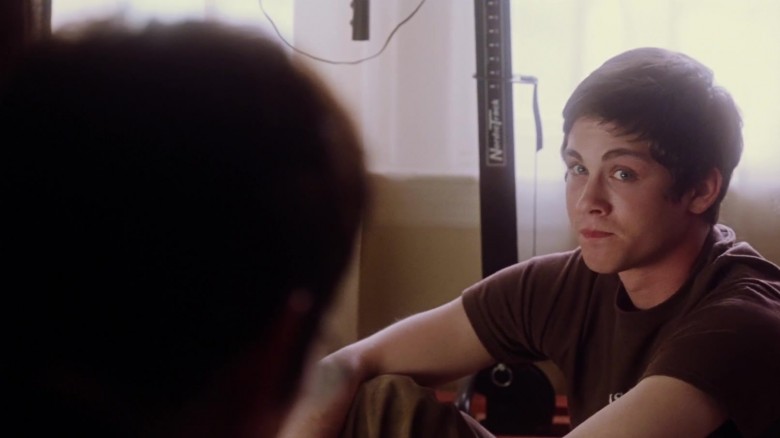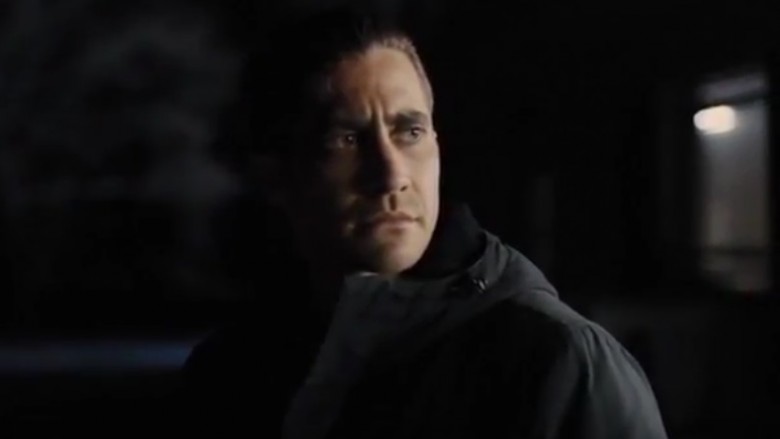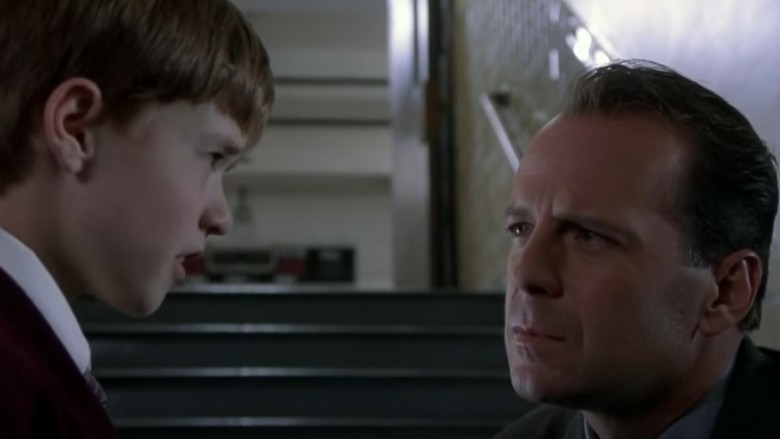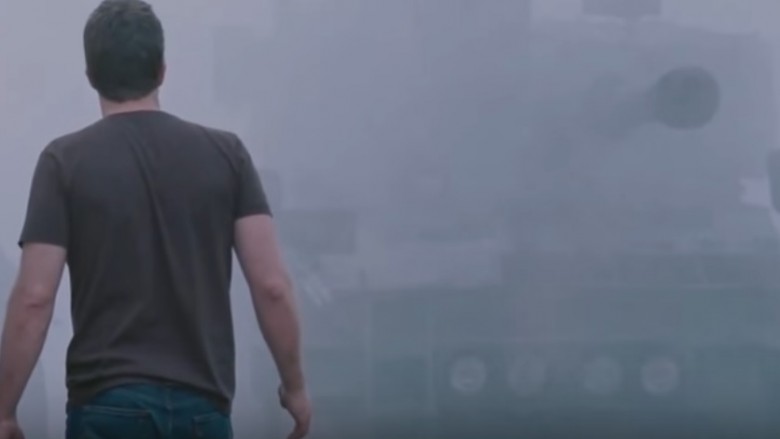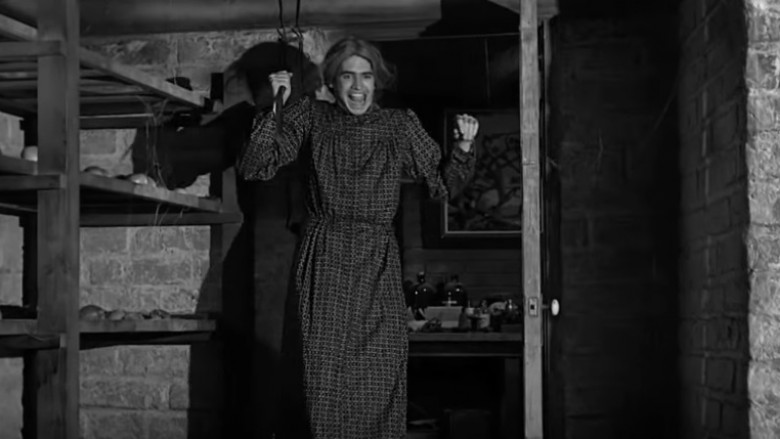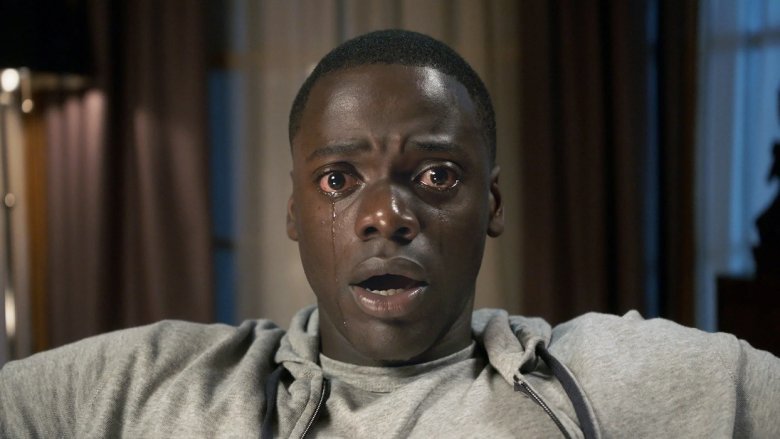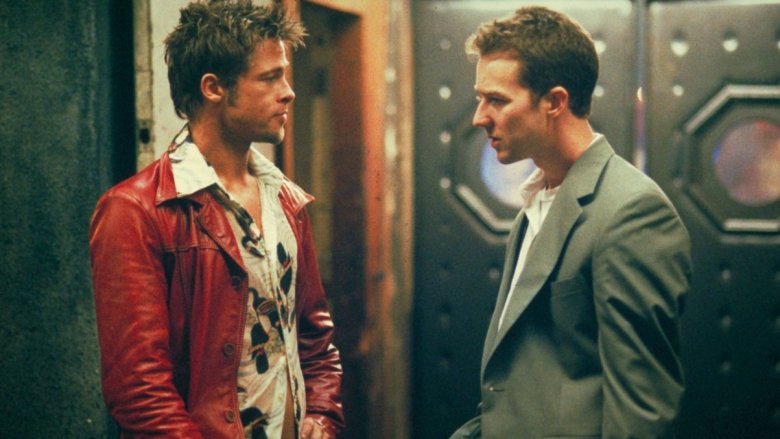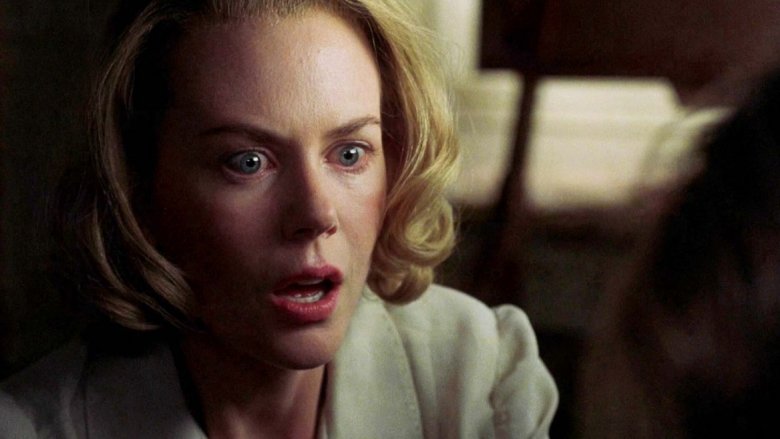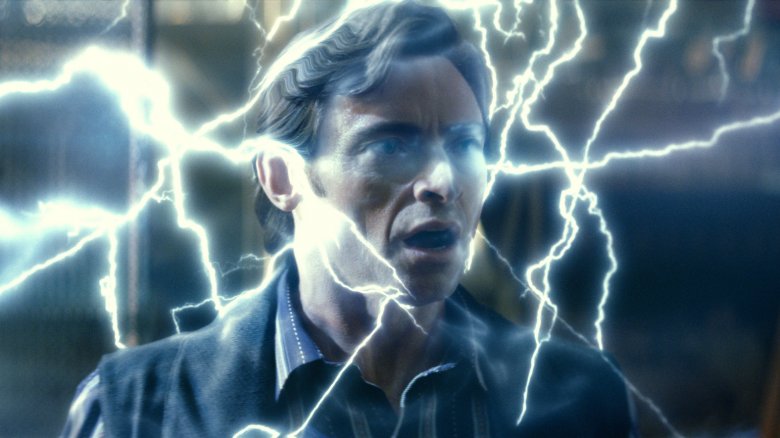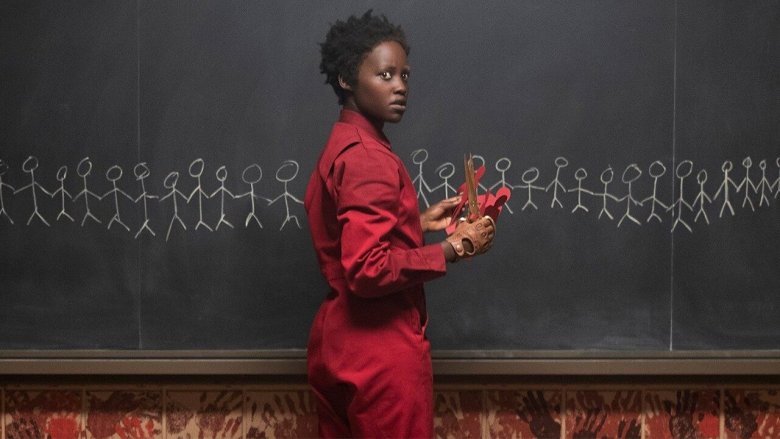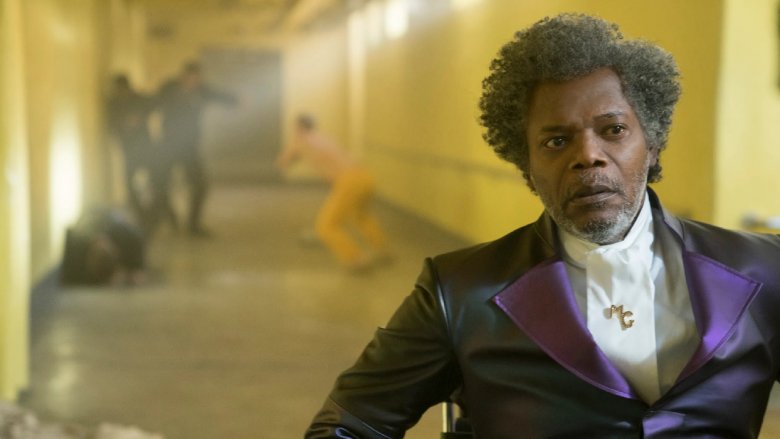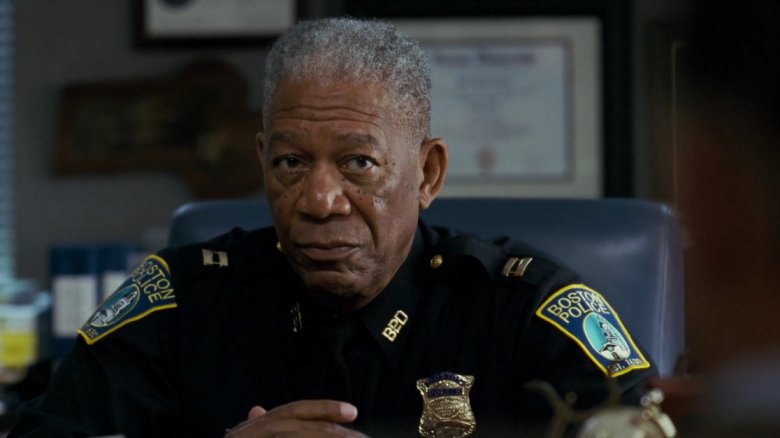The Most Shocking Movie Endings
Whether or not we care to admit it, as film fans we all love a good happy ending. Seeing the characters we've spent 90-plus minutes getting to know ride off into the sunset is a great feeling, though sometimes a greater thrill can be found in a complete shock. Luckily, there are plenty of directors willing to make films designed to leave the viewer utterly speechless as the credits roll. From uncomfortable family revelations to extreme acts of violence, these are some of cinema's most shocking movie endings.
The Usual Suspects (1995)
Ending with one of the most genuinely surprising twists in modern cinema, Bryan Singer's neo-noir classic The Usual Suspects follows the interrogation of seemingly helpless Roger "Verbal" Kint (Kevin Spacey), one of only two survivors of a devastating fire on a ship docked at the Port of Los Angeles. Spacey spins the detectives (and hapless viewers) a long and twisted tale of drugs, deceit and death, explaining that everything comes back to a mysterious mob boss by the name of Keyser Söze. The twist? Spacey's character is Keyser Söze all along, which the officers realize just a few moments too late. As Kint exits the police station and shuffles off down the street, his awkward gait starts to straighten out and we realize we've been had. The greatest trick the Devil ever pulled was convincing the world he didn't exist, after all.
Inglourious Basterds (2009)
Quentin Tarantino's gleefully inaccurate take on the WWII thriller was nominated for eight Academy Awards, with Christoph Waltz taking home the Oscar for Best Actor in a Supporting Role for his portrayal of the film's unforgettable villain Hans "The Jew Hunter" Landa. He joined an ensemble cast including Michael Fassbender, Daniel Brühl and Brad Pitt, the leader of the Nazi-killing U.S. outfit the film is named after. First Lieutenant Aldo "The Apache" Raine (Pitt) and his Basterds go on the hunt for Nazi scalps, machine-gunning Hitler himself to pieces in the process, though the one German Raine cannot kill is Landa. After striking a deal with the top brass, the Jew Hunter is afforded his freedom in the States, though Aldo doesn't let him slide that easily. With the film all but wrapped up, Pitt pulls out his knife and proceeds to carve a Swastika into Waltz's forehead in a shockingly gory close-up.
The Planet of the Apes (1968)
Loosely based on French author Pierre Boulle's 1963 novel La Planète des Singes, this seminal sci-fi was included in Empire's Greatest Movies of All Time list and contains one of the most famous examples of a shock ending. Charlton Heston leads a group of astronauts stranded on a strange and seemingly deserted planet after a crash landing. The crew soon come to realize that they are not alone, however. Apes with human-like intelligence dominate this world and they don't take kindly to the arrival of their otherworldly guests, though it turns out Heston and his team are far from alien. As he escapes the apes and makes his way along the shoreline with returning home on his mind, he comes across the sandy remains of the Statue of Liberty and discovers he's been on Earth the whole time, trapped in a future devastated by nuclear war.
Orphan (2009)
A film containing one of the creepiest shock twists in recent years, Orphan follows a couple (Vera Farmiga and Peter Sarsgaard) trying to move on with their lives after the death of their unborn child. In an attempt to save their marriage, the pair decide to go ahead with their plans for a third child, adopting a quiet 9-year-old Russian girl named Esther (Isabelle Fuhrman). At least, they're lead to believe she's nine. In truth, Esther is a 33-year-old woman named Leena Klammer, a psychopath with a growth disorder who's spent the majority of her life posing as a pigtailed child and being repeatedly adopted. Why does she need to keep finding new families? She keeps trying to get it on with the dads. We watch in sheer horror as Esther sets about seducing her new father and proceeds to kill him when he isn't receptive.
The Empire Strikes Back (1980)
The first Star Wars sequel picked up three years after the destruction of the Death Star, the exciting climax of the first film. Luke Skywalker and the Rebel assault squadron bearing down on the superweapon's weak spot remains a memorable finale, though it pales in comparison to the closing stages of The Empire Strikes Back, known for its double-blow ending. Han Solo being frozen alive in carbonite by Darth Vader and carted off was quite the shock for fans of the dashing pilot, though the real jaw-dropper comes when Luke arrives at Cloud City, spurred on by a premonition of Han and Leia in pain. The young Jedi falls right into Vader's trap, losing his hand during the lightsaber battle that ensues and still refusing to join the Dark Side of the Force. In a moment that would be quoted, referenced and parodied countless times over the years that followed, Vader reveals to Luke that he is actually his father.
Seven (1995)
David Fincher's gory thriller Seven is crammed full of shocking moments, with every discovery of a new victim churning the stomach that little bit more. The mutilations become increasingly horrific as a serial killer inspired by the seven deadly sins picks off those he deems guilty of committing them. One scene in particular sticks long in the memory, however, and that's the film's haunting finale. After veteran detective William Somerset (Morgan Freeman) and his new partner David Mills (Brad Pitt) finally manage to corner the killer (Kevin Spacey), they discover a box containing the head of Mills' pregnant wife Tracy (Gwyneth Paltrow). Despite it being exactly what the killer wants (that is, Mills to complete the killing by becoming 'Wrath'), the heartbroken detective guns down the skinheaded madman in a shocking climax that unlike other scenes didn't actually rely on gore—Paltrow's severed head is never actually shown, despite many viewers coming away swearing they saw it.
Oldboy (2003)
South Korean director Park Chan-wook made inroads in Hollywood in 2013 after helming two English-language films, the psychological drama Stoker and the Chris Evans-led sci-fi thriller Snowpiercer. While both drew praise from critics (the latter has an impressive 95 percent Certified Fresh rating on Rotten Tomatoes) most reviewers agreed that Park's best work was done domestically, and the jewel in his Korean filmography is undoubtedly Oldboy. The film follows a drunk named Oh Dae-su who's framed for the murder of his wife and imprisoned in an iron-doored hotel room by an unknown man. When he's randomly released 15 years later, he aims to track down his captor with the help of a young female sushi chef who takes him in after his ordeal. The woman and Oh Dae-su fall for each other and begin a sexual relationship, though unbeknownst to the pair this is all part of the captor's grand plan. Oh Dae-su and the young woman are actually father and daughter, which Oh's tormentor takes great pleasure in revealing.
The Boy In The Striped Pyjamas (2008)
Those who had read John Boyne's novel going into this movie adaptation were better prepared for the shocking ending than most, but even then it would have been hard not to tense up the moment young Bruno (Asa Butterfield) and his new Jewish friend Shmuel (Jack Scanlon) start heading in the direction of the gas chambers. The film follows these two 8-year-old boys, one the son of a high ranking Nazi stationed at a German countryside manor house, and the other a prisoner at the camp situated directly behind that house. Not fully understanding the events going on around them, the pair become friends, and when Shmuel's father "goes missing" Bruno offers to help find him, donning the prisoner's uniform and entering the hell of the camp never to return. It's a shocking and highly effective ending, though it is actually historically inaccurate, with the truth being even more shocking. There were no boys that age in that camp, as the Nazis immediately gassed those not old enough to work.
God Bless America (2012)
Best known as "the one with the funny voice" from the Police Academy movies, Bobcat Goldthwait really should get more credit for the work he's done behind the camera. He has a "well-crafted, slow-burning horror" on his résumé in 2013's Willow Creek and was able to get a fine tune out of the late Robin Williams in the "startlingly excellent dark comedy" World's Greatest Dad. Between these two features, he directed another movie—one with a real shock ending. God Bless America follows Frank (Joel Murray), a terminally ill man who's had just about enough of celebrity obsession and the decline of American culture, and Roxy (Tara Lynne Barr), a high-school student with a similarly weary world view. Together they embark on a nationwide rampage, gunning down rude civilians and celebrities alike. We always expect Frank to go down in a hail of bullets, but it's a shock to see schoolgirl Roxy also torn apart by police marksmen during a shootout at an American Idol-style TV talent show.
The Departed (2006)
A loose remake of 2002 Hong Kong crime thriller Infernal Affairs, Martin Scorsese's Best Picture winner The Departed moves the action out of Asia and brings it to Boston, home of notorious Irish mob boss Whitey Bulger—the inspiration behind Jack Nicholson's character, Frank Costello. The veteran gangster relies on a his police mole Colin Sullivan (Matt Damon) to stay ahead of the game, though he doesn't realize he also has a double agent in his ranks. Billy Costigan (Leonardo DiCaprio) spent time in prison on a fake assault charge to make his cover more believable, though it didn't do him much good in the end. After finally exposing Sullivan and slapping the cuffs on him, Costigan is shot in the head by another of Costello's moles, though this level of violence (while still shocking) has come to be expected from Scorsese. What wasn't expected was Staff Sergeant Dignam (Mark Wahlberg) showing up right at the final moment after all the dust has settled to put a bullet in Sullivan's temple.
Shutter Island (2010)
Another Scorsese-DiCaprio collaboration with a shocking ending, psychological thriller Shutter Island follows U.S. Marshal Teddy Daniels (DiCaprio) and his new partner Chuck (Mark Ruffalo) as they visit Ashecliffe Hospital for the Criminally Insane to investigate the disappearance of a woman incarcerated there for drowning her children. While perhaps not the directors' best, Scorsese still delivered a "brilliantly constructed mystery" that leads viewers down a winding path with an unexpected end. Just as Teddy believes he's about to solve the puzzle of the missing woman, he discovers his real name is Andrew Laeddis and he's actually a patient at the hospital, sent there for murdering his wife after she drowned their children while suffering from manic depression. The whole investigation was a ruse by the head of the facility, designed as a last-ditch effort to snap Laeddis out of his conspiracy-obsessed insanity.
Saw (2004)
After seven installments, some of which have been of questionable quality, the Saw franchise has become known as nothing but an exercise in cheap thrills and torture porn. As a standalone film, however, the "loathsome and extravagantly twisted" original drew comparisons to David Fincher's Seven, and ended in similarly shocking fashion. Most of the movie takes place in a dilapidated subterranean bathroom where a photographer (Leigh Whannell) and an oncologist (Cary Elwes) have been chained up and instructed to kill one another by an unknown captor. A dead man lies between them for the duration, becoming part of the scenery until the final moments when the bloodied corpse suddenly stands up, revealing himself to be the killer known as Jigsaw (Tobin Bell). It's a unique and totally unexpected ending that manages to be more shocking than all the B-movie gore that came before it.
Into The Wild (2007)
Based on the life and travels of American hiker Christopher McCandless, Sean Penn's Into The Wild is a biographical survival film that spends 148 minutes building up to a happy ending that never comes. Through a nonlinear timeline we watch McCandless (Emile Hirsch) living in complete isolation in the Alaskan wilderness intercut with the steps he took to get there, abandoning his comfortable existence to hit the road and be closer to nature. As the film draws to an end and the harsh winter sets in, McCandless begins to realize that true happiness can only be shared with others and plans to return home to his family, though the river he crossed four months earlier has become impassible. On the point of starvation, the young backpacker is forced to gather roots and plants to eat, accidentally consuming a poisonous one in the process. He crawls into his sleeping bag to die.
The Perks of Being A Wallflower (2012)
Writer/director Stephen Chbosky wasn't just aiming to make another teen-centric indie flick when he decided to adapt his own novel for the big screen, he wanted to make his story about young people's mental health a more "communal experience" in the hope of reaching more of those affected by the themes. The film itself is well acted by leads Logan Lerman, Emma Watson and Ezra Miller, though it's hard to put your finger on what was good about their performances when all you can think about as the credits roll is the shock ending. Troubled protagonist Charlie (Lerman) has been through the ringer and is about to get the girl (Watson), though when she touches his leg he has a flashback of his late Aunt Helen. The film comes to a grim close with Charlie admitting to a psychiatrist that he's been repressing memories of the sexual abuse he suffered at his Aunt's hand before she died in a car crash.
Prisoners (2013)
Denis Villeneuve's abduction thriller Prisoners follows desperate dad Keller Dover (Hugh Jackman) as he hunts his daughter's kidnapper, though while he finally succeeds in solving the mystery of her disappearance, the audience is left with a huge unanswered question of their own. Dover gets himself locked in a backyard bunker by the kidnapper, with his only hope of survival being the tenacious Detective Loki (Jake Gyllenhaal). The bunker's entrance is covered by a truck, however, and Loki is about to unwittingly leave Dover to rot when the latter begins to frantically blow a whistle. Loki stops as if he hears something, and then we fade to black, with Dover's fate left unknown. It's the kind of shocking ending that has audiences waiting for a post-credits explanation, though one is never offered. Screenwriter Aaron Guzikowski even admitted that he expected studio resistance to the planned final scene: "I was very surprised that we were allowed to keep that ending. I was surprised I was able to get the movie made, actually."
The Sixth Sense (1999)
If there's one director known for an obligatory shocking ending, it's M. Night Shyamalan, a man who enjoys nothing more than lulling his audience into a false sense of security only to flip the world he's created on its head. He did it to great effect in 2000's Unbreakable and 2004's The Village, though his most famous shock ending came in his first major success, 1999's The Sixth Sense. The story follows a kid named Cole (Haley Joel Osment) as he tries to come to terms with the fact that he can see dead people through sessions with a troubled child psychologist (Bruce Willis). Unless you've been living under a rock, you already know Willis' character is actually dead the whole time, and when the film first came out stories of its shocking finale spread like wildfire. Word of mouth helped this small-scale supernatural horror bag six Oscar nominations and a staggering worldwide box office total of $673 million.
The Mist (2007)
Frank Darabont's adaptation of the Stephen King novella The Mist caused controversy before it was even released, due to the director choosing to go with a different ending. King fans were put at ease when the author gave his approval of the changes, though only a man who has spent a lifetime delving into the bleak could claim to enjoy it. The film follows a group of people trapped in a supermarket by a deadly mist full of tentacled creatures, one of whom is dad David (Thomas Jane). In the end, David and his young son manage to escape in a car, though when they run out of gas the father is forced to use his remaining four bullets on his child and passengers. After shooting them all, he steps out of the car to accept his gruesome fate at the hands of the monsters, only for the mist to clear and the U.S. Army to appear. The shock ending was so powerful that it left viewers fighting back the urge to punch their TV screens.
Psycho (1960)
One of the first filmmakers to truly understand the art of the twist, Alfred Hitchcock's particular brand of suspense earned him the well-deserved nickname the Master of Suspense, something he delivered consistently over a distinguished career spanning more than five decades. Perhaps his most famous shock ending is the one he conceived for Psycho, the story of Norman Bates (Anthony Perkins) and his family's motel. While Janet Leigh being slashed in the shower is undoubtedly the movie's best-known scene, the most shocking moment comes in the closing stages, when we finally realize Norman's mother has been dead all along and he's been committing murders dressed in her clothing. Hitchcock went to great lengths to keep the twist a secret, swearing the cast and crew to an oath of secrecy and imploring the public to keep quiet about Bates via the film's advertisements.
Get Out (2017)
Jordan Peele's directorial debut Get Out was the most profitable film of 2017, generating an incredible 630 percent return on initial investment. Made for a modest budget of $4.5 million, Peele's social thriller raked in over $255 million at the worldwide box office. A number of factors contributed to Get Out's success, but it was the movie's shocking ending that guaranteed it would live long in the memory.
When Chris (Daniel Kaluuya), a young black man, meets the parents of his white girlfriend Rose (Allison Williams) for the first time, we soon come to realize that something isn't quite right with her family. After Chris meets a peculiar black guest at the family's garden party, viewers are led to believe that the protagonist is about to be brainwashed into some kind of modern-day slavery, but the final reveal is even more mind-blowing: It turns out Chris is in the clutches of the Order of Coagula, a cult that transplants the brains of old, rich white people into the bodies of young black people.
Unlike those that came before him, Chris manages to escape this awful fate, stuffing his ears with cotton to avoid being hypnotized. He fights his way outside and is ultimately rescued by his best friend Rod (Lil Rel Howery). This wasn't the original ending, however — Peele shot a version in which the cops show up instead of Rod and an innocent Chris is jailed for killing his kidnappers.
Fight Club (1999)
It's considered a cult classic today, but Fight Club bombed when it hit cineplexes in 1999. The gritty David Fincher flick (based on Chuck Palahniuk's novel of the same name) was the victim of a mismanaged marketing campaign by a studio that just didn't know what to do with it. According to Fight Club producer Art Linson, execs at Fox were "flopping around like acid-crazed carp wondering how such a thing could even have happened" when they saw the first cut (via Den of Geek). Many critics had a similar reaction, but word of mouth helped turn Fight Club's fortunes around — DVD sales were outstanding, pushing Fincher's film into the black. Those who weren't put off by the negative reviews couldn't help but discuss the film's hyper-violence, nihilistic message, and shocking twist ending.
Fight Club follows Ed Norton's unnamed protagonist (a.k.a the Narrator), a man working a job he hates to buy things he doesn't need. After his apartment is blown to smithereens in an explosion, he moves into a rundown house with Brad Pitt's Tyler Durden, his opposite in every way — cool, focused, and ready to tear the world down. The fight club they start morphs into a full-blown anti-capitalist terrorist cell. By the time the Narrator realizes that he and Durden are the same person, it's too late to stop the plan they've put in place. The movie ends with the destruction of the city's financial district, wiping out everyone's debt.
The Others (2001)
The fact that Alejandro Amenabar's The Others managed to shock audiences even though it dropped just two years after M. Night Shyamalan's The Sixth Sense is a testament to Amenabar's deft approach to the horror genre. The Spanish-Chilean filmmaker told Combustible Celluloid that when it came to writing the script, he began with the twist ending. He then wrote the beginning, and finished with "all the stuff in the middle." When you watch The Others again, you realize that the first two acts are full of subtle hints at what's to come, but the finale left the majority of first-time viewers in shock.
Set in the immediate aftermath of World War II, the film follows Nicole Kidman's Grace, a devoutly religious woman who moves into a remote island house with her two children. Grace's daughter has repeated encounters with an otherworldly family (the eponymous "others") who claim the house belongs to them. She's skeptical to begin with, but when she witnesses a piano seemingly playing itself, she becomes convinced that the old Victorian mansion is haunted. She's correct, of course, but she and her kids are the ones doing the haunting — it turns out Grace murdered her children, and all three of them are ghosts.
It's a shocking, but well-earned twist. "Most of the time it's not about the surprise, but how you set up the surprise, so that when you get there, everything makes sense and it's integrated with the soul of the story," Amenabar told Hollywood.com.
The Prestige (2006)
Christoper Nolan's movies are about much more than just shocking twists, but the director does love a good misdirect. From Memento, his out-of-sequence neo-noir psychological thriller, to Interstellar, his mind-boggling sci-fi epic, Nolan has become well-known for his surprising third acts. While the aforementioned films are great examples of this, the high-concept, head-scratching twists they end on dilute the shock factor somewhat. That wasn't the case with The Prestige, a less complicated (but equally gripping) period movie that left audiences reeling from an unexpected double blow.
The Prestige follows Robert Angier (Hugh Jackman) and Alfred Borden (Christian Bale), rival magicians vying for dominance in 19th century London. Angier becomes obsessed with figuring out his opposite number's Transported Man, a trick in which Borden steps into a wardrobe and exits from an identical one at the opposite end of the stage. Angier is led to believe that Borden has been using a teleportation machine invented by Nikola Tesla, but the truth is far less scientific — Borden is actually a set of identical twins who have been living as one person. That's only part of the surprise, however.
We discover that Angier has actually been using Tesla's machine to do the trick for real. Every time he uses it, he creates a clone of himself. One basks in the applause of the audience, while the other is trapped in a tank and drowned. In the final moments of the movie, we see row upon row of dead Angier clones.
Us (2019)
Jordan Peele's follow-up to Get Out was less a thought-provoking social thriller and more a straight-up horror movie, but the ending was just as shocking. 2019's Us begins with a little girl named Adelaide wandering off from her parents and entering a spooky beachfront funhouse, where she meets her doppelgänger. When her parents finally locate her, she's unable to speak. Fast forward a few decades and Adelaide (Lupita Nyong'o) is all grown up, though she remembers that day all too well. When her husband (Winston Duke) suggests going on a family vacation to the same beach, she reluctantly agrees. Before long she realizes that she should have listened to her gut.
Adelaide, her husband, and her two kids are soon terrorized by a family of red jumpsuit-wearing doppelgängers. It turns out that every one of us has a mute double living in the abandoned and forgotten (but very real) underground tunnels that span the length of the United States. That's not the big twist, however. In the final moments of the movie, it's revealed that Adelaide's double choked her out and switched with her the day they came face to face in that hall of mirrors. The leader of the Tethered is actually the real Adelaide, which is why she's the only one who can speak. "This movie's about maybe the monster is you," Peele said on the Empire podcast (via Vice). "It's about us, looking at ourselves as individuals and as a group."
Glass (2019)
2016's Split marked a return to form for M. Night Shyamalan, grossing almost $280 million. The film itself didn't have a typical Shyamalan twist, but an extra scene that played after the title card at the end of the movie confirmed that it was actually a sequel to 2000's Unbreakable, sending fans into hysterics. The final installment in the trilogy, 2019's Glass, didn't do very well with the critics, but it delivered on the shock factor.
Glass reunites Bruce Willis and Samuel Jackson's Unbreakable characters, David Dunn (a.k.a the Overseer) and Elijah Price (a.k.a Mr. Glass). Both are banged up in a psychiatric ward alongside James McAvoy's Kevin Wendell Crumb (a.k.a the Horde), a man suffering from an extreme case of dissociative identity disorder. All three are under the care of Dr. Ellie Staple (Sarah Paulson), a psychiatrist who specializes in patients who have become convinced that they have superhuman abilities. Staple spends the majority of the film attempting to convince the men that they're delusional, and she's pretty convincing. At times, against our better judgment, we believe her.
Of course, she's wrong. It transpires that Staple is part of a secret society that has been actively repressing super-powered people for years. Price is killed by the Beast, and Staple's men murder Dunn and Crumb. There's one final twist, however — Price hacked the institution's security cameras. Footage of Dunn and Crumb's super-powered showdown is leaked to the public, revealing the existence of superhumans to the world.
Gone Baby Gone (2007)
The ending of Ben Affleck's directorial debut Gone Baby Gone was divisive to say the least. The movie, based on Dennis Lehane's novel of the same name, is about the kidnap and subsequent search for missing child Amanda McCready (Madeline O'Brien). Private investigators Patrick Kenzie (Casey Affleck) and Angie Gennaro (Michelle Monaghan) are hired to find her, and they do — she just isn't where you'd expect her to be. We're led to believe that an associate of Amanda's degenerate mother is responsible, but it turns out that retired police captain Jack Doyle (Morgan Freeman) took the girl, believing that she'd have a far better life with him rather than growing up in a rundown part of Boston with an unfit mother.
Fans of the movie are still arguing about what comes next. When Kenzie discovers the truth, Doyle attempts to convince him that he should walk away and allow Amanda to grow up under his care. Kenzie's romantic and professional partner Gennaro agrees with the former cop, and she threatens to leave him if he takes the girl back to her drug-abusing mother. He takes her home anyway, believing it's the right thing to do. "You see the squalor the girl lives in and your heart goes out to her for where she used to live, not only where she's been taken to," Ben Affleck told NPR. "So it raises all kinds of questions about how we're living and how we're treating kids."

